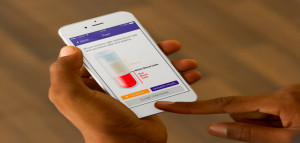DENVER, CO – Driven by a determination to provide her patients with the highest level of care possible, Dr. Kim Gandy spent years training as a pediatric transplant and cardiac surgeon at Duke and Stanford. But after witnessing a number of adolescent transplant patients die because they had forgotten to take their medication, Dr. Gandy decided to leave clinical practice and found Play-It Health, a digital health company dedicated to improving medical adherence.
“Even in the beginning, when I first became involved in medicine, I was interested in the problems that were on the horizon, and not just the problems that we were dealing with then,” Dr. Gandy told CyberMed News.
This interest was cultivated during Dr. Gandy’s residency, when a mentor encouraged her to consider how treatments could be augmented to better aid transplant recipients. Years later, her desire to improve patient care would lead her to obtain a PhD in Immunology at Stanford, which allowed for a more comprehensive understanding of the science behind transplant surgery.
But even with all of her training and expertise, Dr. Gandy found there was little she could do to help her patients overcome the relatively simple – and yet potentially deadly – problem of medical non-adherence.
“The moment I knew I was going to found Play-It Health, I was sitting in a room with three nurse practitioners, trying to think about what we could do to get a pediatric transplant program started.”
When the nurse practitioners admitted that they were reluctant to develop a transplant program because of the large number of adolescent patients who died after forgetting to take their medication, Dr. Gandy realized that something had to be created that would address the fears of healthcare providers by encouraging patients to follow their treatment regimens.
That realization has since been the driving force behind Play-It Health’s commitment to developing digital health solutions that have the ability to improve medical adherence for millions of Americans, while potentially saving the US healthcare system billions of dollars each year.
A Digital Health Solution for Medical Adherence

Users can interact with Play-It Health’s primary medical adherence solution, Plan-It Med, on their smartphones.
The Play-It Health team has designed a digital health solution that aims to improve medical adherence through patient engagement. Known as Plan-It Med, this solution – which is currently available for download in the iTunes store – uses a variety of customizable components to encourage users to take their medication.
“Part of what’s missing from a lot of digital health products is the understanding that sometimes there’s just not an app for that,” Dr. Gandy explained. “That’s why we’ve created a solution that includes software, services, and advice for strategic implementation.”
Plan-It Med sends its users medication reminders tailored to their particular treatments, and provides condition-specific education matched to each user’s knowledge level. The medical adherence solution awards points to users when they indicate that they have taken their medication. Points are also awarded when users who don’t take their medication record why they were unable to do so.
“Our users have the ability to redeem these points for coupons and discounts on retail purchases,” Dr. Gandy said while describing the solution’s rewards platform. “The points also allow them to access games.”
Plan-It Med combines data from its different components to generate a score that allows clinicians to quickly assess a patient’s adherence rate by placing them into one of three zones: the acceptable zone, the warning zone, or the danger zone. The solution’s clinician-facing dashboard is able to generate medication adherence reports from these scores on a daily, weekly, or monthly basis.
“Part of our mission has been to take this engagement data and distill it into something that is easy to interpret for the clinician.”
Plan-It Med is currently being considered for implementation by a variety of healthcare organizations, from community practices and hospital divisions, to entire hospital systems and employee assistance programs.
The pilots under consideration plan to use the solution to ensure medical adherence for patients with serious conditions like heart failure, COPD, renal failure, and HIV.
A Community That Supports Innovation
Play-It Health’s sophisticated approach to the stubborn problem of medical non-adherence has allowed Dr. Gandy to build a strong team composed of several individuals with significant experience in the fields of healthcare and technology. It has also attracted pilot interest from a variety of major organizations – including Duke University, Stanford University, and the Veterans Administration.
“We have fourteen groups that have already demonstrated a desire to engage with us,” Dr. Gandy admitted. “Because of the community support that we’ve received in Denver, we’re focusing most of our efforts here.”
Dr. Gandy was first introduced to the Colorado digital health ecosystem in early 2015, when Mike Biselli and Jake Rishavy approached her on behalf of Prime Health. They invited Dr. Gandy to Denver to attend the first 10.10.10, a healthcare-focused CEO boot camp conceived of by the Boulder-based tech entrepreneur Tom Higley.
“The fact that somebody was able to propose a model that I hadn’t seen before, and was able to mobilize so much effort and support behind that – I think that says a lot for the ecosystem.”
Play-It Health was subsequently invited to participate in Prime Health’s 2015 Digital Health Challenge, which saw eight digital health startups compete to win pilots funded by the Colorado Health Foundation. After Dr. Gandy delivered her pitch, she was approached by HCA and the University of Colorado, both of which demonstrated an interest in piloting Plan-It Med.
Dr. Gandy has since decided to move Play-It Health from Kansas City to Denver, and foresees the community support that she has encountered here playing a vital role in the development of her company.
“Entrepreneurship in general is hard, but digital health entrepreneurship is even harder, because unfortunately the scale-up period is very long. Denver is going to be the main focus of our clinical pilots, because we want to leverage the excitement that exists in this ecosystem right now.”
Responding to the Unexpected
Though Plan-It Med’s features still closely align with the medical adherence solution that Dr. Gandy first envisioned five years ago, the platform has undergone several changes as the nascent field of digital health has continued to develop. Dr. Gandy views the pivots that Play-It Health has made as necessary responses to unforeseeable circumstances, comparing them to what she often experienced as a congenital heart surgeon.
“As much as we knew what we were going to do when we went into every procedure, once the heart was open, there was always something we found that we weren’t expecting.”
“But we still had to get that heart closed and get the kid off the table.”
Like the coverage that CyberMed News provides? Follow us on Twitter, LinkedIn, and Facebook to make sure you keep up to date on the most recent developments in Colorado’s digital health community.






Be the first to comment on "This Transplant Surgeon Is Betting That Digital Health Will Save Lives"